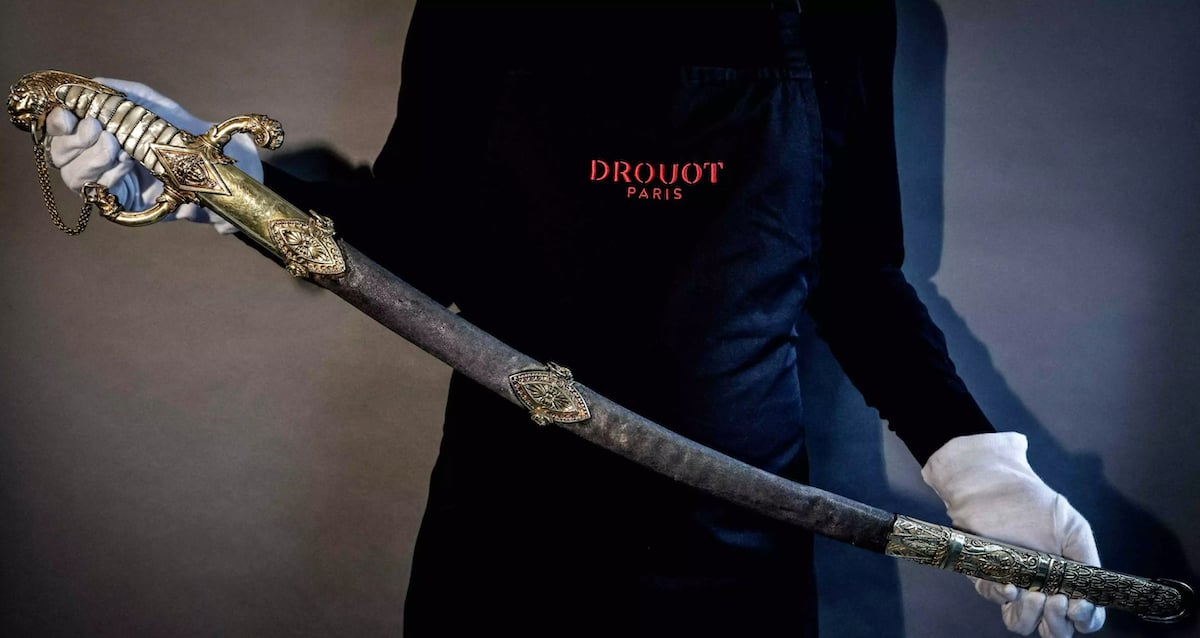Napoleon’s Secret Weapon: The Lavish 1802 Sword Expected to Shatter Auction Records at $1 Million
Imagine wielding a sword so decked out with ancient gods and mythical beasts that it could basically star in its own epic Netflix series — and all while being carried by none other than Napoleon Bonaparte himself. Yep, back in 1802, the French emperor commissioned this ornate masterpiece, a blade with a hilt boasting Medusa’s fierce glare and a golden dog clutching a snake (seriously, who does that?). He clung to this gem through his meteoric rise, wars, and ultimately, his legendary fall at Waterloo in 1815 — though, just before that final curtain call, he handed it off to a close confidant. Now, nearly two centuries later, this one-of-a-kind relic is poised to hit the auction block with a mind-boggling price tag approaching $1.1 million. But here’s the kicker — beyond its craftsmanship and history, isn’t it wild to think how a sword’s story can mirror the rise and fall of a whole empire? Ready to dive into the drama, the details, and maybe even a little dash of fate woven into steel? LEARN MORE.
French ruler Napoleon Bonaparte commissioned this ornate sword in 1802 and ultimately gifted it to a close friend shortly before his historic defeat at the Battle of Waterloo in 1815.
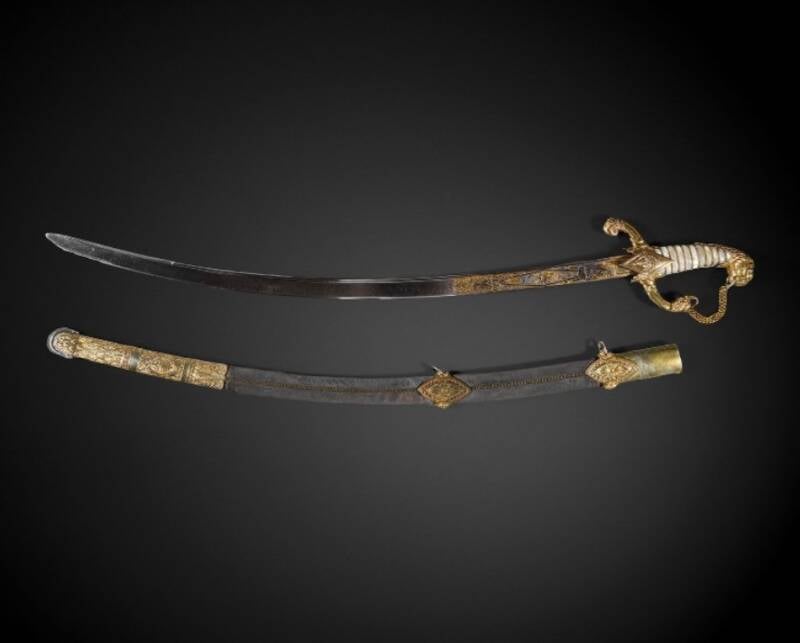
GiquelloThe sword includes several ornate details, including decorative motifs drawn from the mythology of ancient Greece and Rome.
As Napoleon Bonaparte consolidated his power in France in 1802, he commissioned the master armorer at the state armory in Versailles to make him a sword. This magnificent blade, which Napoleon kept by his side until just before his historic defeat at the Battle of Waterloo in 1815, is now set to sell at auction for between $800,000 and $1.1 million.
Furthermore, this sword is an important part of Napoleon’s story — from his rise as emperor to his exile and death — and it belongs to a larger collection of Napoleon-related artifacts that have sold at auction, often for astonishing sums, in recent years.
The Ornate Details Of Napoleon’s Prized Sword Commissioned In 1802
The sword, which is being auctioned by Giquello in Paris on May 22, was commissioned by Napoleon in 1802. Created by Nicolas-Noël Boutet, the master armorer at the state armory in Versailles, the sword is replete with ornate details.
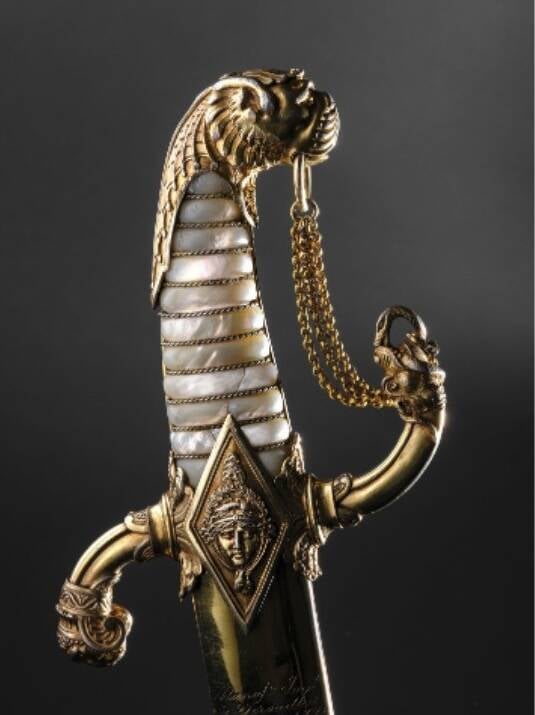
GiquelloThe hilt of Napoleon’s sword includes ornate details like a golden dog’s head.
Its hilt includes a relief with the head of Medusa wearing the head of the Nemean lion, two quillons (the bar between the blade and the hilt) with ram’s heads, and a hilt with a golden dog holding a snake in its mouth.
Meanwhile, the center of the sword shows Napoleon on horseback, at the head of an army under a cloudy sky. In the background, a winged god holds a civic crown. Above this, a winged goddess holds a second civic crown alongside a depiction of a globe, military trophies, and floral decorations. The blade also bears the inscription “N BONAPARTE” and “PMIER CONSUL,” as well as additional decorative embellishments like Mars, the god of war, as well as Hercules holding a club.
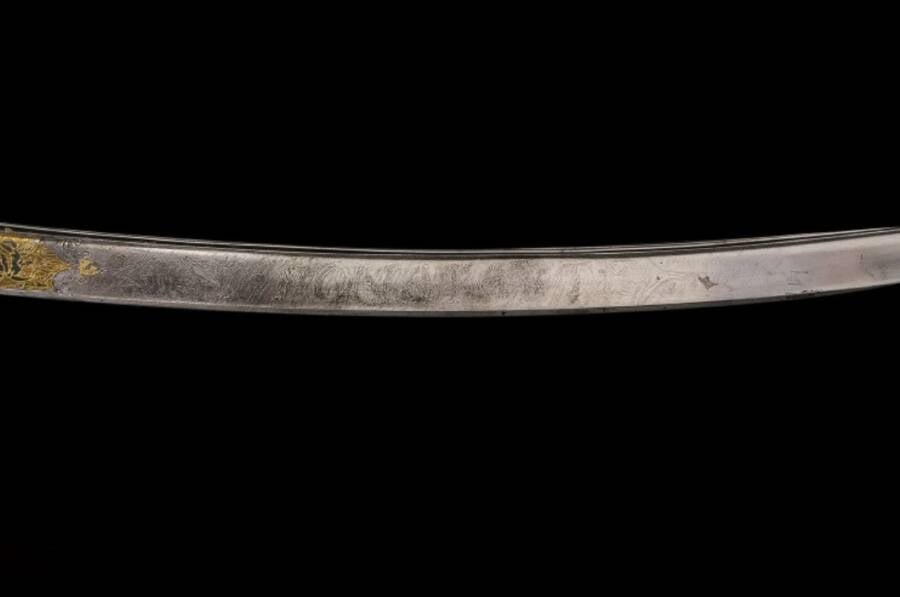
GiquelloThe blade of Napoleon’s sword, inscribed with his name.
An extremely rare artifact — there is only one other version of the sword, a second copy, which is held by the Hermitage Museum in Saint Petersburg, Russia — the auction house expects that Napoleon’s sword will sell for between $800,000 and $1.1 million.
Napoleon Bonaparte’s Rise To Power, And The Astonishing Relics Left Behind After His Reign
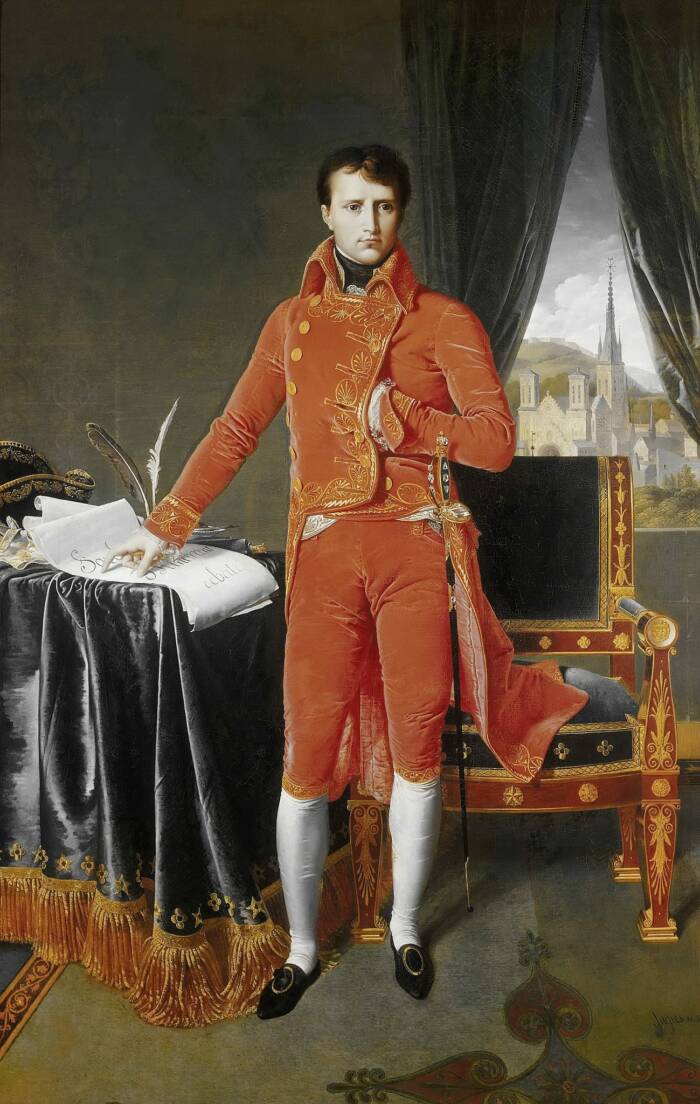
Public DomainNapoleon Bonaparte as First Consul, the title he took in 1802, the year this sword was commissioned.
Born in Corsica in 1769, Napoleon rose to power during the chaotic years of the French Revolution. In 1799, he seized control of France in a coup d’état. In 1802, the year Napoleon commissioned his sword, he made peace with Britain and Spain in the Treaty of Amiens, and consolidated his power through a referendum that made him “first consul for life.”
Two years later, Napoleon was crowned emperor. He spent the early 19th century conquering much of Europe, but was stymied during his failed 1812 invasion of Russia and subsequently exiled to the Mediterranean island of Elba. After briefly returning from exile, Napoleon gifted his prized sword to an ally, Emmanuel de Grouchy, but was then defeated at the Battle of Waterloo in present-day Belgium in 1815. After then being exiled again, this time to the island of Saint Helena in the South Atlantic Ocean, Napoleon died in 1821 at age 51.
The sword, however, remained in the Grouchy family for generations thereafter.
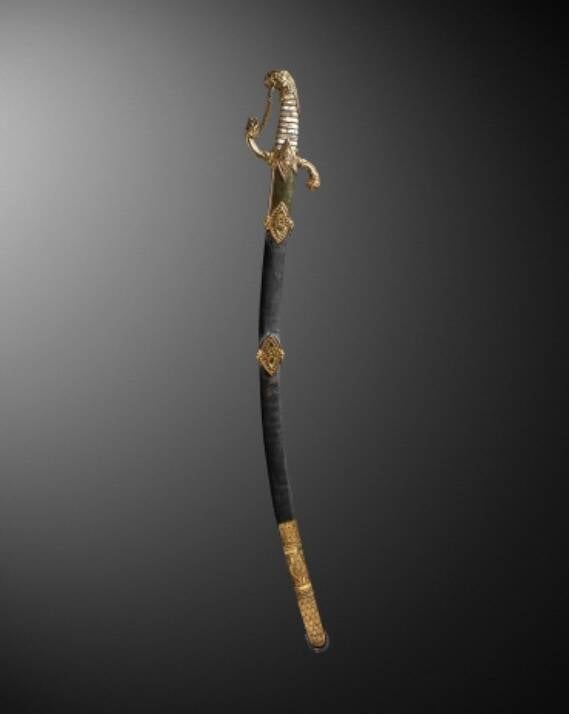
GiquelloAfter Napoleon gifted the sword to his loyal ally, Emmanuel de Grouchy, it remained in the Grouchy family for decades.
Napoleon has remained a figure of fascination ever since (as has his height), and a number of Napoleon-related artifacts have fetched high prices at auctions in recent years.
In 2024, for instance, two pistols that Napoleon had planned to use to take his own life in 1814 after a military defeat sold at auction for $1.8 million.
Now, Napoleon’s sword is expected to fetch a similarly high price. Not only is it an incredibly ornate artifact, but it belongs to a crucial moment in Napoleon’s life, and thus a crucial moment in the history of Europe itself.
